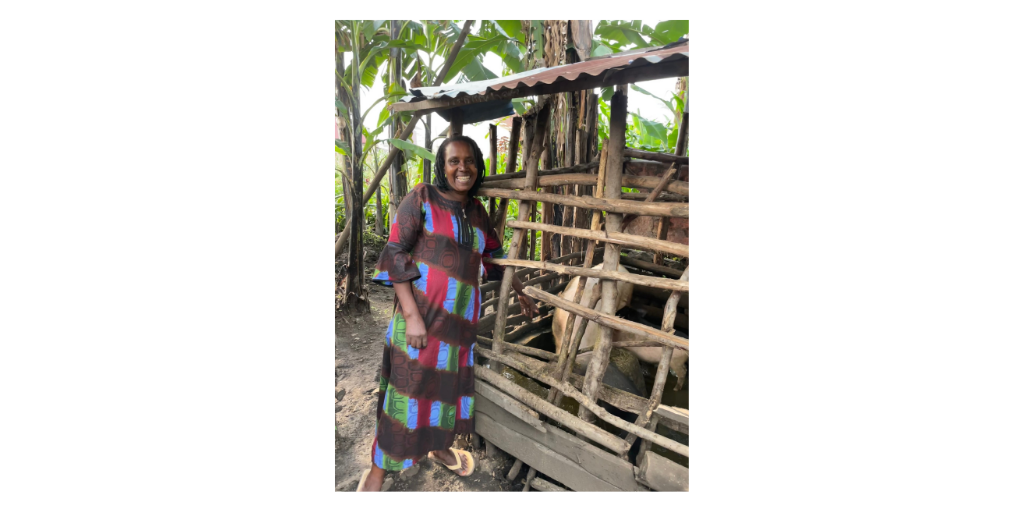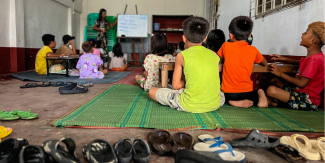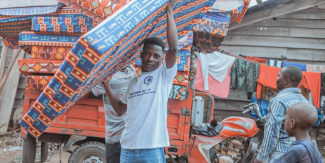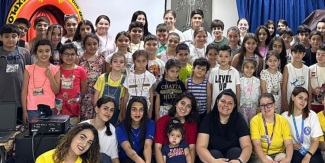It turns out that a banana plantation is a great place to raise a pig.

The eighteen-month wait between pulling out old banana trees grown for beer and waiting for the new ones planted for nutrition and income to mature was difficult, but the women in a Rwandan community’s self-help groups believed in the process and the expected outcomes. The banana project in Rwanda provides jobs caring for the trees and a place for self-help groups to gather and receive agricultural training.
With the money from the sales of the first edible bananas they harvested, the groups decided to buy and keep pigs. Nazarene Compassionate Ministries in Rwanda, which supports the program, bought their piglets to distribute.
Sifa was one of those who received one of the animals, and loves to tell her story. She raised her little piglet, bred it, and soon had nine more tiny swine to sell. With her profits, she purchased the materials for a cement floor for her house, a luxury that not only improved her self-esteem but helps her and her family prevent the kinds of disease that dirt floors can cause.
“All because of bananas and pigs, I am living in a house with concrete,” Sifa says. “With the money I had left over from selling my first litter, I built a nursery so I could raise more.” She is currently rearing seven piglets in a nursery shaded by her own tall banana trees. Her plans for the profits from this litter are firm. “After paying for health insurance, I will buy a dress, and something else for the family.”
Already, there’s evidence that pigs and bananas are a winning combination. The manure, mixed with grass and other plant waste, is a good fertilizer and leads to bigger banana yields. Members sell their pigs, which may be eaten or bred to establish additional “piggeries.” Both elements move the community at large toward greater access to food and financial security. The revenue collected from the sale of pigs will be used to maintain the existing banana trees and buy more piglets, and so forth. Ultimately, the program is expected to become self-sustaining.
--
This report provided by Growing Hope Globally, partner organization to Nazarene Compassionate Ministries. Through their ministry, the the grassroots energy and commitment of rural communities in the U.S. is linked with the capability and desire of smallholder farmers in developing countries to grow lasting solutions to hunger.
The Rwandan Banana project's main goal is to increase income and food security by promoting local agricultural products grown on banana plantations and in kitchen gardens. In addition, the program focuses on improving participants’ health and well being through nutrition, education, and planting activities.
Learn more about how Growing Hope Globally is helping to fund this project here.






Add new comment